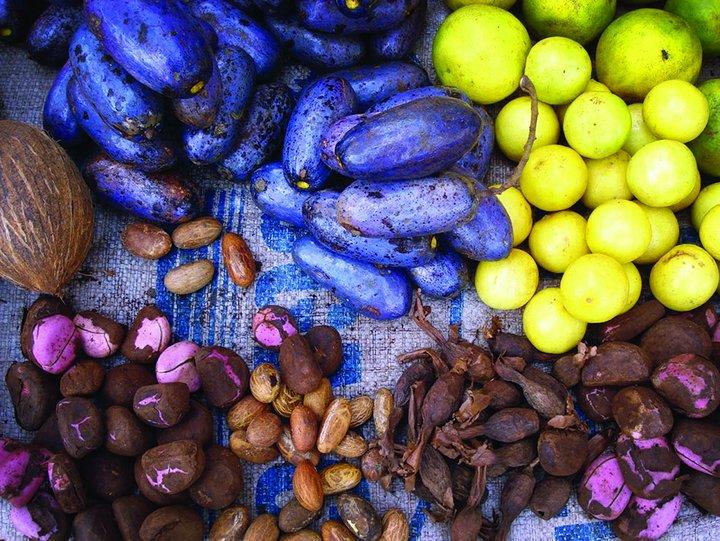Forest foods: Sustainable and resilient

The Contribution of Forests to Sustainable Diets was one of seven background publications for the international conference on Forests for Food Security and Nutrition. Read more in this 2013 Annual Report story.
The Contribution of Forests to Sustainable Diets was one of seven background publications for the international conference on Forests for Food Security and Nutrition, held in Rome at the Food and Agriculture Organization of the UN during May 2013. Co-written by Bioversity International researchers Barbara Vinceti, Céline Termote, Bruce Cogill, Danny Hunter and CGIAR partners, the paper highlighted the potential for trees and forests to contribute to food security and better nutrition.
Affordable, nutritious and culturally important, forest foods can supply the micronutrients, fibres and other key components that have been found to be missing from local diets in several developing countries. And it is not just fruits and nuts: populations around the world consume leaves, mushrooms, roots, insects, wild animals and eggs to complement staple food and as a way to cope during food shortages. This is especially important for rural men and women who often have limited livelihood options.
“But despite these benefits, the reduced access and increasing perception of indigenous foods as old-fashioned or inferior can discourage their consumption,” says Barbara Vinceti. “In order to overcome the issues, there is a need for sustainable management and strong awareness-raising campaigns.”
As a result of these and other issues discussed during the conference, participants developed the policy brief Towards food security and improved nutrition: Increasing the contribution of forests and trees, which summarizes their main policy recommendations.
